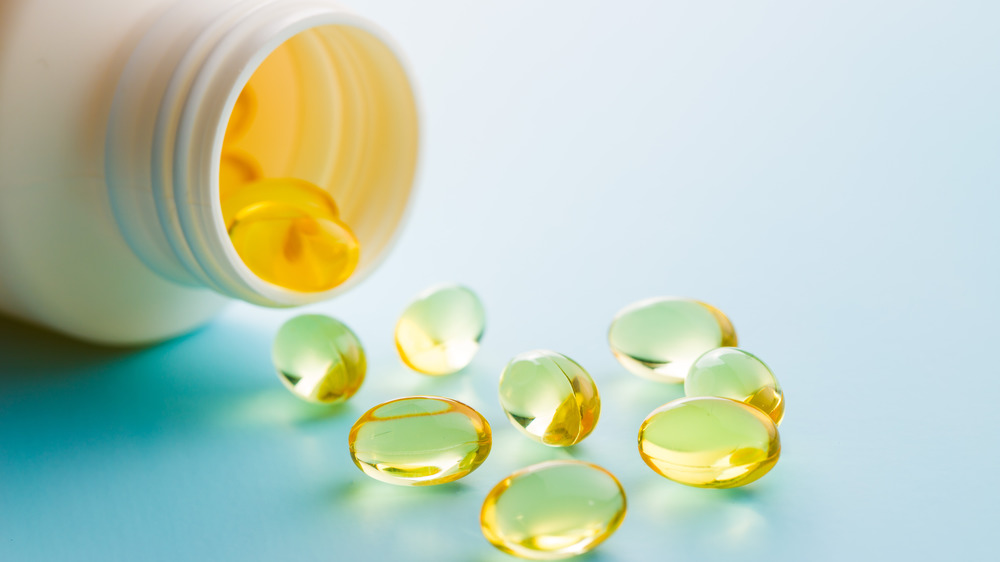The Real Difference Between Vitamin D2 And D3
You may have heard that vitamin D is what your body makes if you spend time in the sun. But did you know that it's not just one vitamin? In fact, there are two main kinds of vitamin D — vitamin D2 and vitamin D3. But what's the difference between them? According to Yale Medicine, the two types come from different sources. But perhaps more importantly, too much or too little of either type can have serious health consequences.
Your body needs vitamin D to help it absorb calcium so it can build and maintain strong bones. Without vitamin D, a person can develop bone disorders or bone loss. So how do you get enough vitamin D? When sunlight hits your skin, your body naturally produces vitamin D3. But not everyone gets enough sunlight to make the right amount, so it's important to eat foods rich in vitamin D3 like egg yolks, butter, and fatty fish.
Unlike vitamin D3, which is only found in food from animals, vitamin D2 comes from fortified foods or foods sourced from plants (via Healthline). Things like fortified milk, cereal, or even mushrooms grown under ultraviolet lights are great sources of vitamin D2. Both types can be taken in supplement form, although taking too much can create toxic levels of calcium in your body. But does the type of vitamin D you get really make a difference to your health?
Vitamin D2 and D3 show up differently in your blood
While both vitamin D2 and vitamin D3 can easily get into your bloodstream, your liver breaks them down differently. The vitamins are turned into compounds known together as calcifediol. Studies have shown that vitamin D2 seems to make less of this compound than vitamin D3 (via NIH). This makes vitamin D3 more effective at raising calcifediol levels in your blood, which is what doctors check for when they test you for vitamin D.
So should you worry about taking the right kind of vitamin D? If you've been diagnosed with a vitamin D deficiency, your best choice would probably be to take a vitamin D3 supplement, which has been shown to be nearly twice as effective as a vitamin D2 supplement. But if you're like most people, a diet with enough vitamin D-rich foods, no matter which kind of vitamin D, should be just fine.


